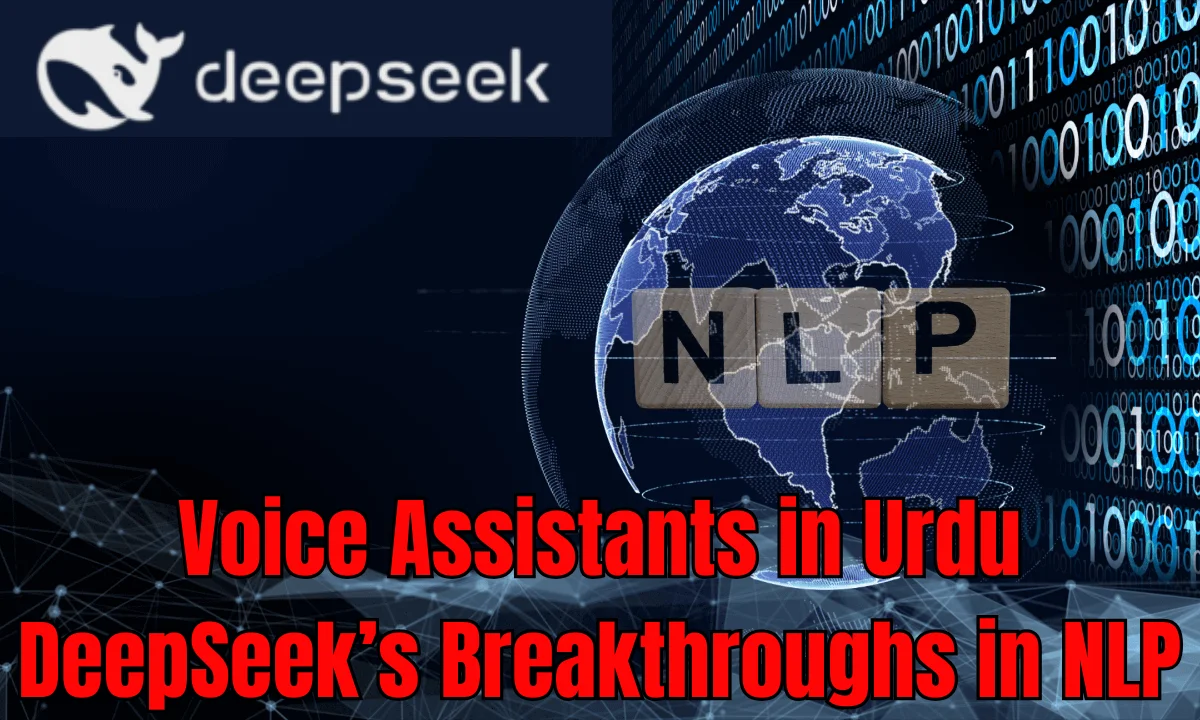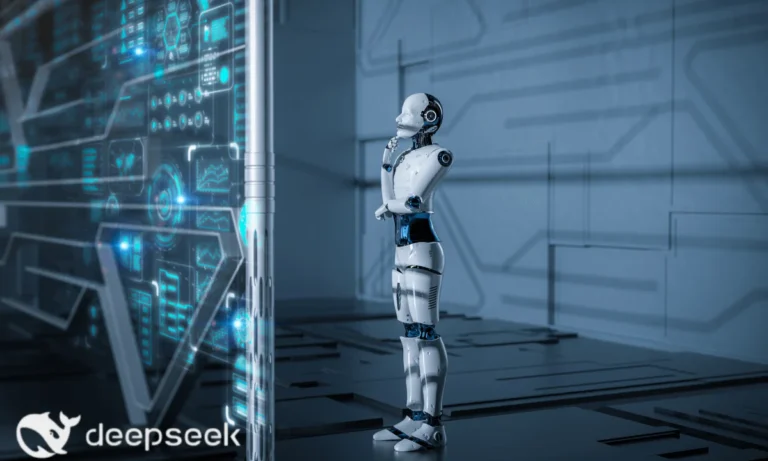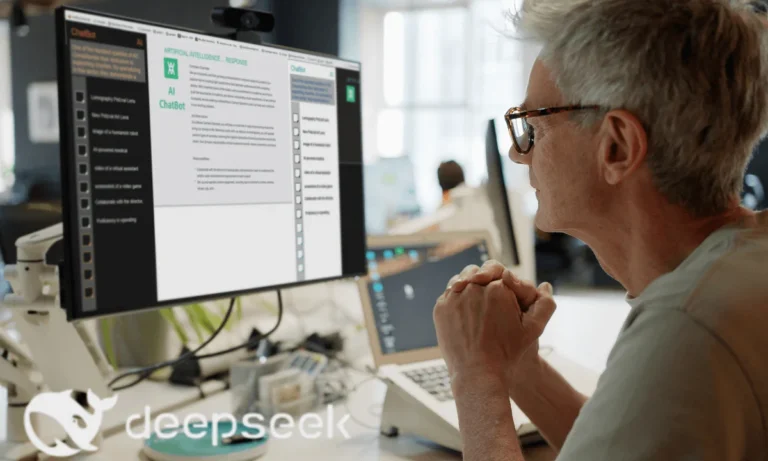Voice Assistants in Urdu: DeepSeek’s Breakthroughs in NLP
Introduction
Voice Assistants in Urdu: Imagine asking your smartphone in Urdu about the weather, sending voice messages, or controlling smart devices without switching to English. For years, this felt like a dream for millions of Urdu speakers. But today, that dream is quickly becoming reality. DeepSeek, a leading AI research platform, has achieved a major breakthrough in natural language processing (NLP) with voice assistants in Urdu.
This development is not just a technological upgrade; it is a cultural milestone. By bridging language gaps, DeepSeek is bringing digital inclusion to communities that often struggle with English-based systems.
AI in Gaming: How Pakistani Developers Are Leveraging DeepSeek
Background: Why Urdu Voice Assistants Matter?
Urdu is spoken by over 230 million people worldwide. Yet, most advanced voice assistants like Siri, Alexa, or Google Assistant offer limited or no support for it.
This language gap creates challenges:
- Users often rely on English or Roman Urdu.
- Rural populations face barriers in accessing digital services.
- Businesses miss opportunities to engage customers in their native language.
DeepSeek recognized this gap and focused on designing AI systems that can understand, process, and respond in Urdu naturally.
Robotics vs. Pure AI: Which Will Transform Pakistan First?
Key Highlights Of DeepSeek’s Breakthrough
DeepSeek’s Urdu voice assistant project introduces multiple innovations that set it apart from existing technologies:
- Speech Recognition: Accurate detection of Urdu words, even with diverse accents.
- Contextual Understanding: Ability to understand cultural phrases, idioms, and context.
- Code-Switching Support: Smooth handling of Urdu mixed with English, common in Pakistan.
- Real-time Responses: Faster answers with near-human fluency.
- Accessibility: Designed for low-cost smartphones and voice-based apps.
BISP And DeepSeek To Launch New Registration Portal
How The Urdu Voice Assistant Works – Step by Step?
DeepSeek’s NLP-based Urdu assistant follows a clear process to convert speech into meaningful interaction:
- Voice Input:
The user speaks in Urdu. The system records the audio. - Speech-to-Text Conversion:
DeepSeek’s AI transcribes spoken Urdu into written words with high accuracy. - Natural Language Processing (NLP):
The assistant analyzes sentence structure, context, and meaning. - Intent Recognition:
The system identifies what the user wants — for example, weather updates, directions, or app commands. - Response Generation:
The assistant prepares an Urdu-based response in text or audio. - Voice Output:
A natural, human-like Urdu voice delivers the answer to the user.
AI in Silicon Valley vs. Pakistan: Emerging Opportunities
Benefits And Social Impact
The launch of Urdu voice assistants can transform multiple sectors:
For Individuals
- Easier smartphone navigation for people with limited literacy.
- Quick access to information in local language.
- Voice-controlled apps for everyday needs.
Businesses
- Customer support in native Urdu.
- New market opportunities in rural and semi-urban areas.
- Personalized services that build trust and loyalty.
For Education & Government
- E-learning in Urdu, making content more accessible.
- Citizens can interact with e-government portals through voice.
- Improved inclusivity in digital transformation initiatives.
AI Hardware: GPUs, TPUs, and What Pakistani Developers Need to Know
Important Guidelines And Precautions
While Urdu voice assistants are promising, users and developers must follow certain guidelines:
- Privacy First: Ensure conversations are encrypted and not misused.
- Accuracy Check: AI may misinterpret slang or heavy dialects, so cross-verification is needed.
- Limited Connectivity Areas: Offline features must be included for rural users.
- Cultural Sensitivity: Urdu responses must respect local cultural norms.
Investors’ Perspective: Why AI Startups in Pakistan Are Booming
FAQs
1. How accurate is DeepSeek’s Urdu voice assistant?
It provides over 90% accuracy in standard Urdu and handles mixed Urdu-English sentences effectively.
2. Can it work without internet?
Yes, basic commands work offline, but advanced features require internet connectivity.
3. Will it support regional Urdu accents?
The AI is trained on multiple accents, but accuracy may improve further with user feedback.
4. Can businesses integrate this assistant into their apps?
Yes, DeepSeek provides APIs for developers to embed Urdu voice services in customer apps.
5. Is it available for free?
A free version is available for basic users, while premium features may be subscription-based.
Government and AI: Policy Experts Discuss Regulation in Pakistan
Conclusion
DeepSeek’s breakthroughs in Urdu NLP mark a new era of digital accessibility. By enabling natural, real-time voice interaction, the company is empowering millions of Urdu speakers who previously struggled with English-based technology.
The future looks promising. With continuous AI training, better regional accent support, and deeper integration into daily apps, Urdu voice assistants will not just be tools of convenience but engines of inclusion. Pakistan’s digital transformation is entering a new phase — one where language will no longer be a barrier.
Government and AI: Policy Experts Discuss Regulation in Pakistan







